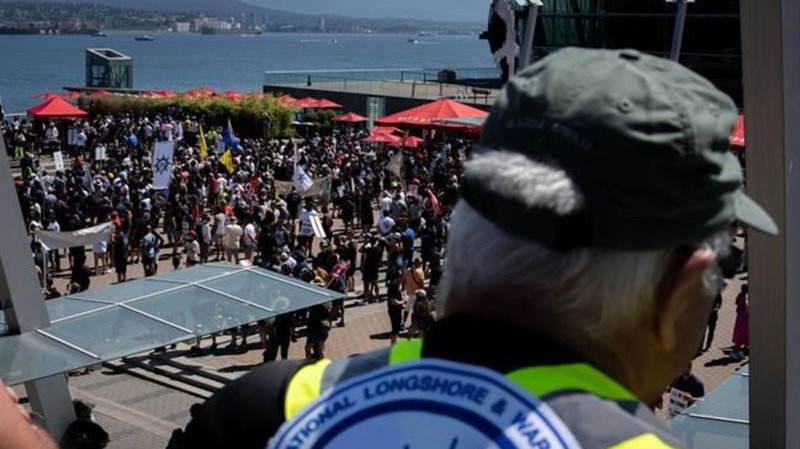
New tentative deal is reached in B.C. port workers dispute
VANCOUVER — The two sides involved in a labour dispute affecting about 7,400 port workers in British Columbia say they’ve reached a new tentative deal.
The International Longshore and Warehouse Union Canada and BC Maritime Employers Association issued a joint statement late Sunday saying a deal had been reached with help from the Canada Industrial Relations Board, which was tasked with ending the dispute that had dragged on since the beginning of the month.
A joint statement from the union and the employers association offered no details on the new deal but said both sides “are recommending ratification of the collective agreement to the union’s membership and member employers respectively.”
The breakthrough in the dispute came after union members voted Friday to reject a previous deal, prompting federal Labour Minister Seamus O’Regan to intervene Saturday and direct the board to determine if a negotiated agreement was still possible.


